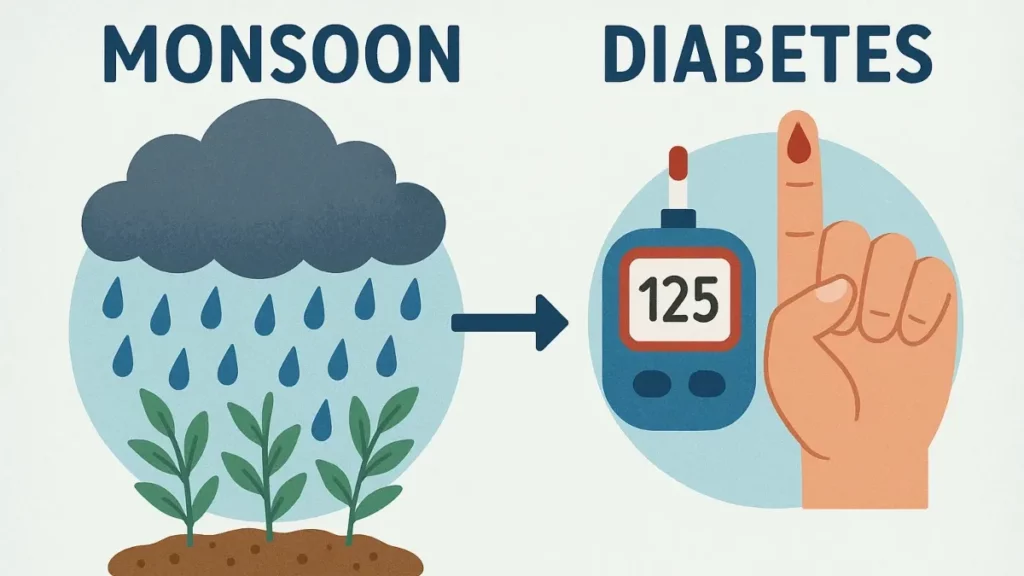
Common Monsoon Infections in Diabetic Patients
To prevent risk, diabetic patients need to take extra caution during the monsoon. In this article, an expert has explained why the wounds take time to heal during rainy days and the infection spreads faster.
The monsoons themselves have unique health issues, particularly for diabetics, even though they offer respite from the intense summer heat. The ideal conditions for infection are increased humidity, a damp environment, and restricted mobility during this period. White blood cells are weakened by high blood glucose in diabetics, which impairs tissue healing and the immune system. During this time, when cleanliness becomes more difficult, even small cuts, insect bites, or friction wounds can become infected and take longer to heal.
Dr K P Madhukar, M.S., Dip.MAS (HPB), FMAS, FIAGES, FDFS, Minimal Invasive, General & Diabetic Foot Surgeon, Associate Professor & Head of Unit, K J Somaiya Hospital & Research Centre said, “We observe a strong rise in certain infections in diabetics during monsoon at K J Somaiya Hospital. Fungal infections such as candidiasis, athlete’s foot, and ringworm are more frequent due to the warm, humid environment, especially when footwear is wet.” Diabetic neuropathy tends to cause numbness in the feet, which means minor injuries go unnoticed and untreated. Once established, infected wounds also heal slowly because of a weak immune system and inadequate blood flow.
The season also throws off daily routines, including sleep, exercise, and diet, all of which have an impact on blood sugar regulation. Additionally, by interfering with collagen synthesis and decreasing oxygen delivery to tissues, fluctuating glucose slows healing.
There are warning signals diabetic patients need to watch out for: increasing redness or swelling, redness and warmth where a wound was, pus drainage, bad smell, increased pain, or overall weakness. Fever signals spreading infection, such as cellulitis, and should be treated as an emergency. Not noticing early signs can cause severe complications like diabetic foot ulcers.
To prevent risk, diabetic patients need to take extra caution for their feet: keep them dry and clean, daily inspect them, and do not go without footwear. Wearing dry socks and ventilated shoes discourages fungal development. A healthy diet with vitamins C and D, zinc, and proper hydration is also essential for maintaining immunity. Above all, seek medical help in time if complications occur—prevention and timely intervention are the buzzwords for diabetic wound care.
Disclaimer: Tips and suggestions mentioned in the article are for general information purposes only and should not be construed as professional medical advice. Always consult your doctor or a dietician before starting any fitness programme or making any changes to your diet.